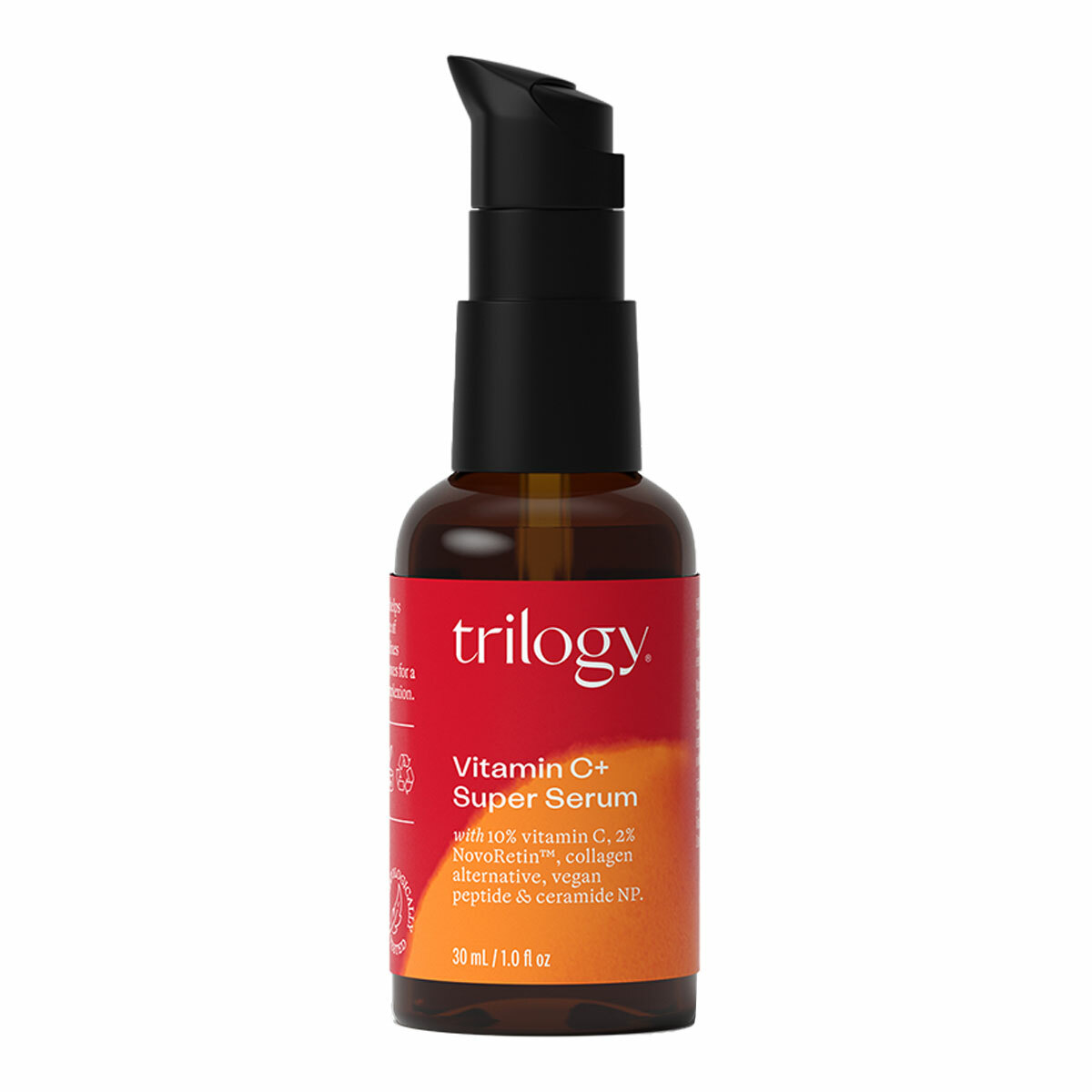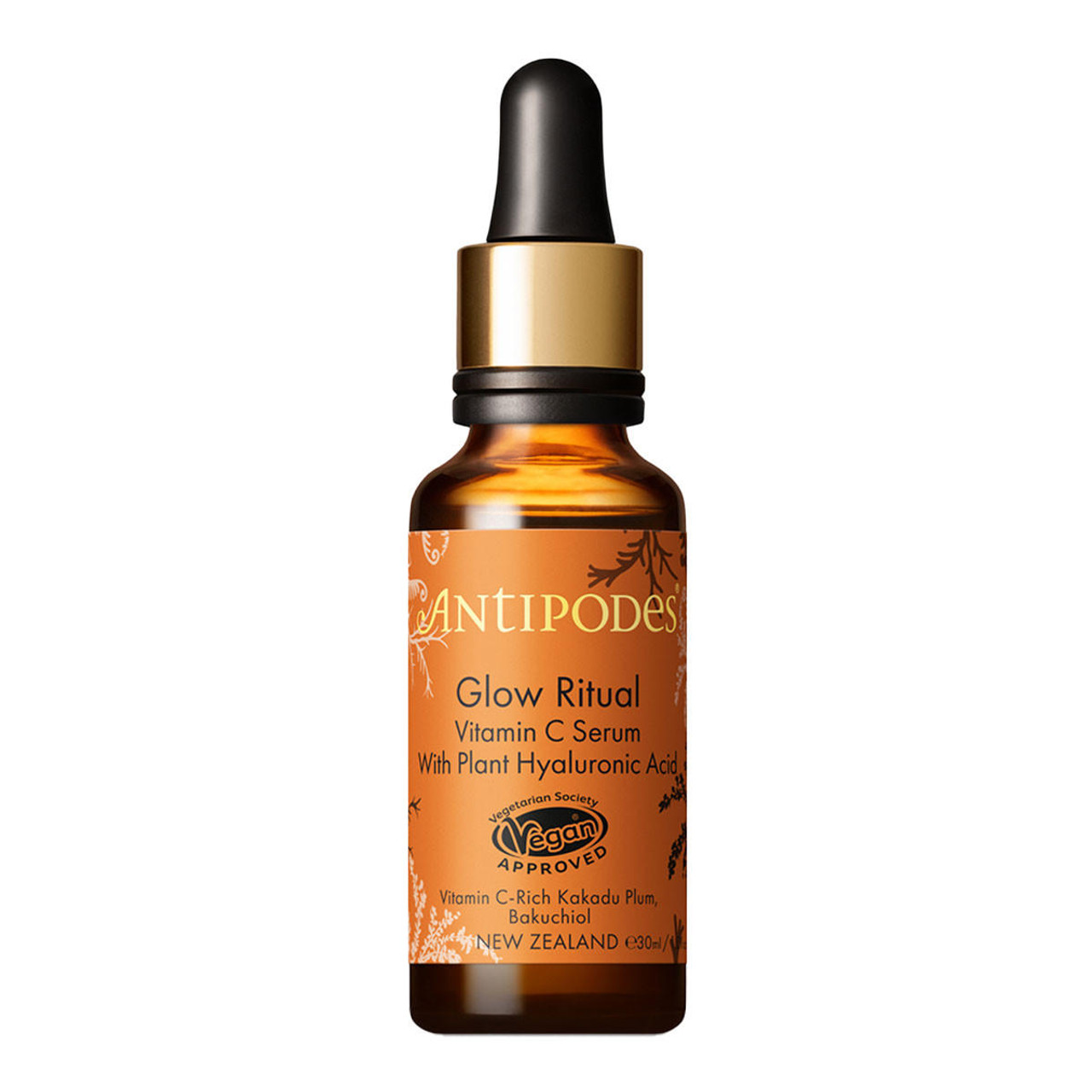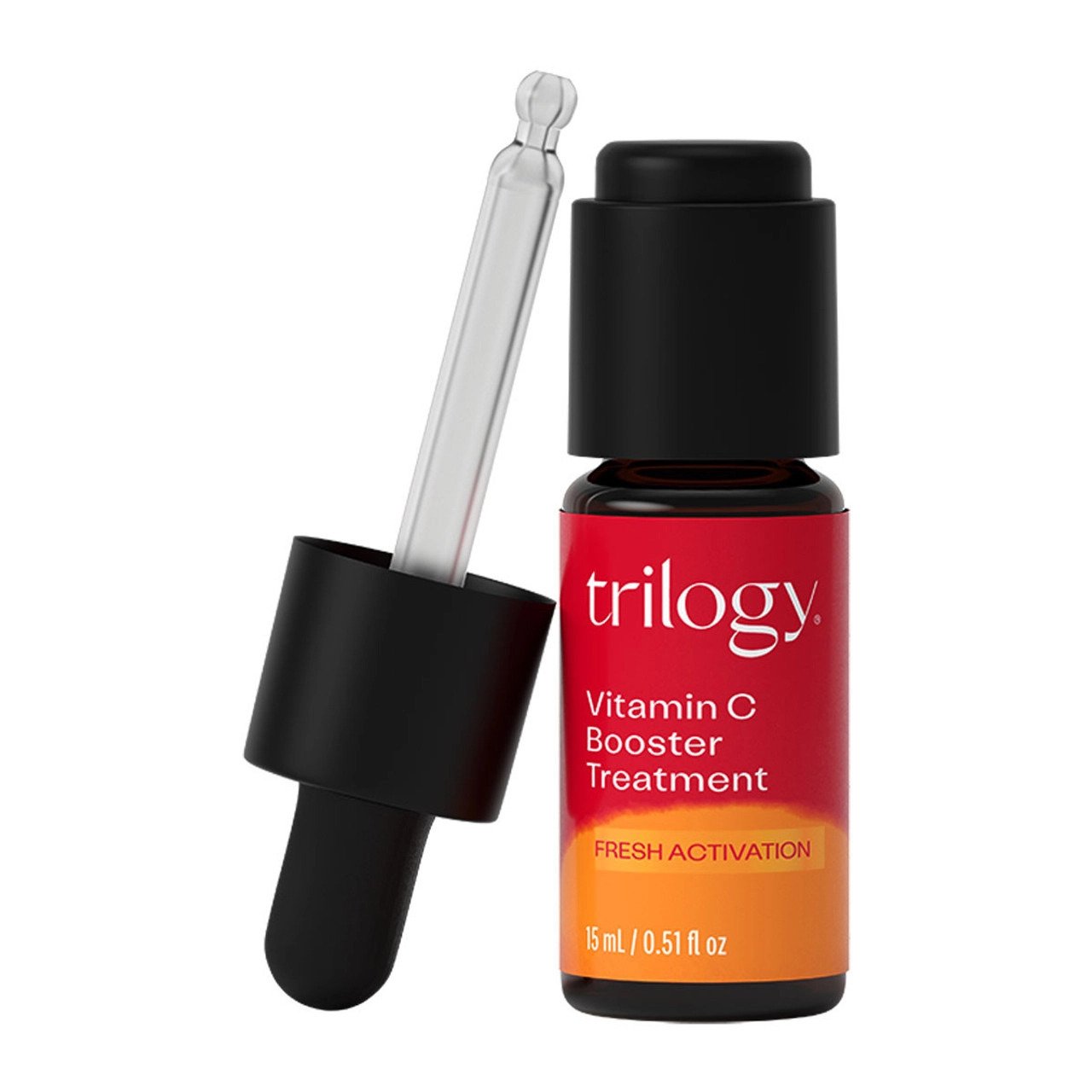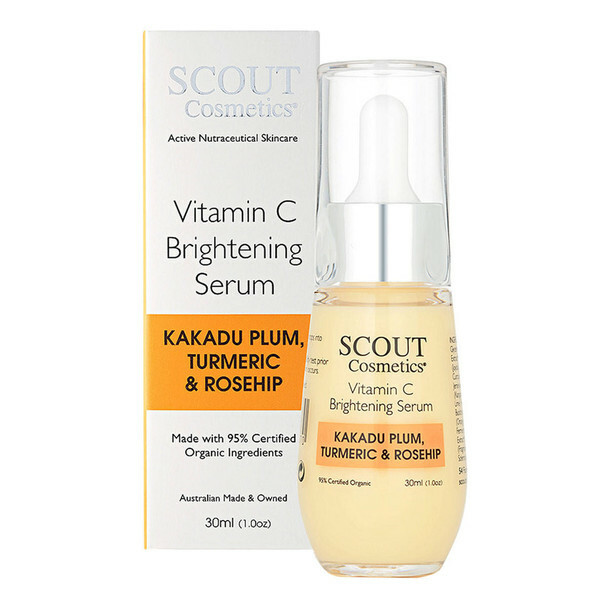
Vitamin C serums are synonymous with skin brightening. People love it as a supplement for immune support as well as the support it offers growth and repair of the skin. Now this powerful antioxidant has hit the shelves for the free radical protection it offers the skin.
Why does our skin need vitamin C?
Our skin can be exposed to pollutants that cause free radical damage daily. Pollutants include cigarette smoke, smog, UV light, stress, and simply from being a human who breathes oxygen. These free radicals can damage the dermis, alter the way our skin stays hydrated, the texture, and overall vibrancy.
Benefits of vitamin C for the skin
Whether your concern is aging, dull or stressed skin, or general health of the skin, Vitamin C skincare is excellent for all-round support for the skin. Vitamin C can:
- Improve visible signs of aging
Vitamin C can improve visible signs of aging and protect the skin from free radical damage because it’s a fantastic antioxidant.
- Support collagen production
Vitamin C is needed by the body to produce collagen, which is an essential natural ingredient for strong connective tissue in the body.
- Brighten skin’s appearance
Skin’s appearance can become dull over time, whether that be as a result of aging, pigmentation, exposure to environmental pollutants or UV. Vitamin C is helpful for evening out the skin tone and improving the appearance of pigmentation, again because it’s an antioxidant.
- Support a strong and healthy skin barrier
Having a strong and healthy skin barrier is fundamental to our overall health. Our skin protects us from the outside world, so having a barrier that is not only intact but as healthy as can be is important.
Is diet enough?
Even with a diet rich in fresh fruit and vegetables, research has shown that applying vitamin C to the skin is the best way to get the results – relying on diet alone for addressing skin needs is ineffective.
Here’s the 4 things you need to know about for your next vitamin C serum:
1. Formula stability
Ascorbic acid (vitamin C) is very sensitive to light and air. If you notice that your vitamin C skincare products starting to look bit brown and discoloured, that’s a sign that the product isn’t stable.
In order to stabilise vitamin C, there are different techniques that formulators use.
- If the product contains ascorbic acid, the product should be below a pH of 4, which will help keep it stable, and have the added benefit of improving the way it is absorbed into the skin.
- Added vitamin E – this is another antioxidant, which can complement vitamin C in skincare and keep it stable
- Use vitamin C derivatives (sodium or magnesium ascorbyl phosphate). These are more stable forms of vitamin C (more on these later)
- Use protective packaging – ideally dark containers or boxed if in clear glass.
2. Type of vitamin C
There are a few different forms that vitamin C is available to be incorporated into a vitamin C serum. They all tend to have pros and cons.
- L-ascorbic acid
This is the most studied form of vitamin C within skincare. Ascorbic acid is the most popular choice to use in skincare because it is the most bioavailable. It absorbs quickly into the skin, if the pH is correct (around 3.5). Unfortunately, this is also the most easily oxidised form of vitamin C. Ascorbic acid is usually used in small amounts but can be included up to 10% in a product.
- Sodium ascorbyl phosphate (SAP), Magnesium ascorbyl phosphate (MAP), and Ascorbyl palmitate (AP)
These are considered vitamin C derivatives. Once they are applied to the skin, they convert to ascorbic acid. The bioavailability is less than using ascorbic acid, but they are very stable ingredients that don’t tend to oxidise. These can be added up to 10% to a formula, and they withstand a pH range that’s closer to the normal 5.5 of the skin.
- Kakadu Plum (Terminalia ferdinandiana)
For people who love the idea of a naturally sourced vitamin C product, Kakadu Plum is an Australian raw ingredient that is famous for being one of the highest natural sources of vitamin C, and also contains other beneficial phyto-nutrient antioxidants like ellagic acid. Despite there being limited research about the bioavailability of the ascorbic acid in Kakadu Plum, this ingredient is showing excellent results in all the same things that we love vitamin C for and appears to be a stable way to use an ascorbic acid rich ingredient in a product.
3. Complementary vitamin C ingredients
In order to retain stability, it’s best if ascorbic acid is combined with vitamin E or ferulic acid, which supports the antioxidant function and pH of the formula.
Consider if you want an oily product by looking at the list of ingredients. If the first few ingredients are plant-based oils, it’s an oil-based serums. If the first ingredient is water (aqua), it’s a water-based emulsion.
4. Concentration - % of vitamin C
There’s certainly a lot of myths when it comes to vitamin C serums. Here are some truths about vitamin C in your skincare:
- The amount doesn’t matter if the product has oxidised. Pick reputable brands who have tested the efficacy of their products
- There’s no need for the vitamin C content to be higher than 10%. More isn’t always better. Research has shown that at a greater concentration than 10%, there is no additional benefit to the skin. The source of the ingredient is what matters most. Don’t be fooled by a product that contains 10% Ascorbic acid being better than a product with 5% Kakadu Plum, if the ascorbic acid product isn’t stable.
- If the product contains ascorbic acid, the pH must be around 3.5 to support absorption.
- If the product contains SAP, MAP, or AP, the pH of the product should be between 6 – 7.
Who should use vitamin C in their skincare?
People who want brightening support, to improve overall evenness of skin tone, or to improve the appearance of pigmentation. If you’re exposed to higher levels of pollution or UV (which most of us are these days), it’s good to consider.
If you’re using vitamin C skincare to brighten your skin, it’s essential to use a sunscreen during the day. Sunscreen is the greatest protection we can use on a daily basis to prevent the signs of aging on our skin.
Who shouldn’t use vitamin C?
If you’ve got very sensitive skin, vitamin C serums can be slightly irritating due to them having to be a slightly acidic pH range. If you’ve got sensitive skin, it’s recommended to patch test first to see how your skin reacts. Don’t use vitamin C serums with other acids, like salicylic, as the skin can be irritated.
Our best vitamin C serums
For your all-in-one Vitamin C serum: Trilogy Vitamin C+ Super Serum
This powerhouse formula is packed with 8 actives for your radiant, youthful bounce, and healthy skin.
What we love:
- Contains 10% Vitamin C for a superboost treatment
- NovoRetin™ 2% is a natural retinol alternative, works wonders, refining pores, reducing fine lines, and adding bounce
- A blend of ceramide NP, hyaluronic acid, and plant glycerin support skin barrier health and hydration naturally
|
For your daily glow: Antipodes Glow Ritual Vitamin C Serum With Plant Hyaluronic Acid
Silky Vitamin C serum that leaves you with a dewy glow? Get golden luminous goodness in a drop.
What we love:
- Kakadu Plum, with 100x the vitamin C of oranges
- Hyaluronic acid for hydration and a dewy complexion
- Bakuchiol, a natural retinol alternative, for a radiant glow
|
For a concentrated boost: Trilogy Vitamin C Booster Treatment 15ml
Special event? This potent Vitamin C formula is the ultimate two-week at home brightening treatment before a holiday, wedding, or special event.
What we love:
- Contains 6% ascorbic acid for everyday use
- Clever packaging design adds the ascorbic acid when you are ready to use it, maximising stability
- Contains hyaluronic acid, aloe vera, and daisy flower extract for deep hydration and brightening support
|
For your affordable Vitamin C boost: Essano Brightening Vitamin C Concentrated Serum
Essano skincare favourite supports your bright, radiant glow - on a budget. At least than $30, it's a healthy choice for your skin and your wallet.
What we love:
- 5% vitamin C in a stable lipid soluble form
- Complemented by Vitamin E to support the effectiveness of Vitamin C
- Suitable for sensitive skin
|
For brightening sensitive skin: SCOUT Organic Active Beauty - Vitamin C Brightening Serum
All about organic ingredients? Us too. This beautiful formula is rich in Vitamin C botanicals, including Kakadu Plum, Desert lime, and Rosehip.
What we love:
- Suitable for sensitive skin
- With kakadu plum, turmeric and rosehip
- Potent blend of vitamin C and certified organic ingredients
|
|






